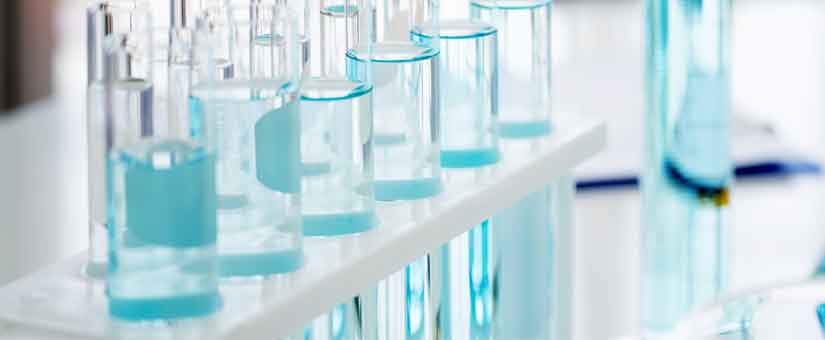Q Labs Provides A Wide Range Of Efficacy Testing Services To Support Label Claims For Your Products
Sanitizers and disinfectant products make label claims that indicate the effectiveness of their products. Hand Sanitizers, disinfectant wipes, and cleaning products all do it. In fact, if you look at the label of several popular household disinfectants, it says, “kills 99.9% of bacteria and viruses.” Similar claims are made for disinfectant products that are used to clean hospitals, manufacturing facilities, food preparation areas and laboratories. But how are these claims verified? How do you know how effective these products really are?
Label Claim Verification
Certified laboratories, such as Q Laboratories, perform several different types of studies to verify that label claims are correct and accurate. These studies protect us, as consumers, from false or inaccurate label claims and incorrect information.
Manufacturers that make the label claims for their products hire experts like Q Laboratories to verify their label claims and protect all of us from false or misleading information. There are several different types of studies for sanitizers & disinfectants that are used to verify the claims.
Product Label Claims Are Required
Tests validating label claims are required by the FDA (Food & Drug Administration), the EPA (Environmental Protection Agency), and are supported by many organizations such as the CDC (Centers for Disease Control & Prevention) and NSF (National Sanitation Foundation).
Types of Studies
Q Laboratories performs the following types of Label Claim Support studies for a variety of clients in the sanitizer, disinfectant and cleaning industry:
TIME KILL STUDIES
A Time Kill Study is a microbiology method for the assessment of antimicrobial activity of an antimicrobial test material or disinfectant. The Kill Time Study is carried out to evaluate the microbial reduction by a disinfectant against selected bacteria or fungi after a specified exposure time.
CLEANING AND DISINFECTION EFFICACY STUDIES
Cleaning and Disinfection Efficacy Studies are performed to demonstrate that your cleaning and disinfection process is effective on your unique surfaces. Collaborating with Q Laboratories on a custom study design will allow you to prove your procedure is effective at inactivating or removing microorganisms, such as bacteria, fungi (yeast and molds), and/or bacterial spores.
MINIMUM INHIBITORY CONCENTRATION STUDIES
The Minimum Inhibitory Concentration (MIC) is defined as the lowest concentration of an antimicrobial ingredient or agent that is bacteriostatic (prevents the visible growth of bacteria).MICs are used to evaluate the antimicrobial efficacy of various compounds by measuring the effect of decreasing concentrations of antibiotic/antiseptic over a defined period in terms of inhibition of microbial population growth.
Q Laboratories has the resources and facilities to perform label claim verification studies by using ASTM (American Society for Testing & Materials) Time Kill Methodologies, The Disinfectant Efficacy Study using the AOAC (Association of Official Analytical Chemists) Disinfectant and Germicidal Spray Method, or by performing Minimum Inhibitory Concentration studies.
Q Laboratories, Committed To Helping Our Customers Succeed
If you are a manufacturer in need of label claims testing and support, Q Laboratories offers an easy on-boarding process, collaborative study design, and exceptional service. During these challenging times, we remain committed to supporting our clients that manufacture and distribute critical supplies that will keep consumers safe and healthy. As an essential business, we are fully operational and have built up additional capacity to respond to the need for increased testing of regulated products.





